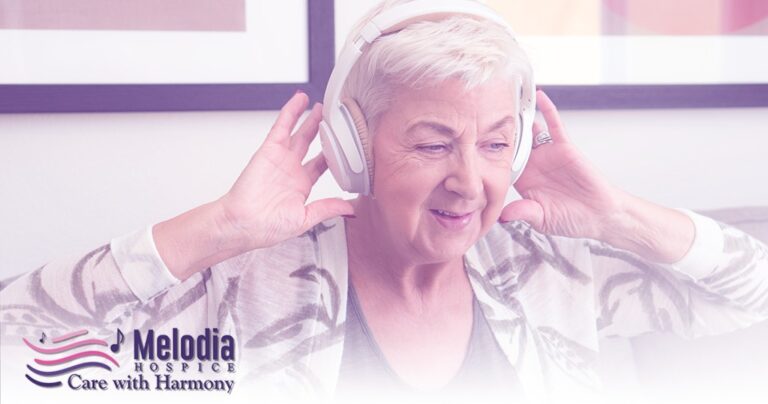Hospice Music Therapy In El Cerrito City, California
Music Therapy
People who are suffering from medical difficulties for which a treatment is either difficult to find or no longer possible may find music therapy to be an appropriate therapeutic option. Patients in hospice may benefit from music therapy techniques that can help them cope with both their physical and emotional difficulties during their illness.
Using this sort of music therapy, which has been shown to be beneficial in treating many diseases, involves working with a board-certified music therapist to customize each patient’s treatment plan to match his or her specific requirements. The use of instruments, listening to music, deciding which songs to play, singing, writing, music-assisted relaxation/imagination, and improvisation are all examples of interventions.
Patients in hospice and palliative care can benefit from the skills of a large number of music therapists. Patients suffering from serious or fatal illnesses can benefit from the use of music therapy in conjunction with standard medical treatment. The social aspect of listening to music with friends and family can enhance the already relaxing effect of listening to music in a group setting. Patients can express themselves through songwriting, listening to music, and playing musical instruments, among other activities. Although palliative care facilities treat a wide range of illnesses, there are some common symptoms that can be alleviated by the use of music therapy.
Loss Of Memory

Music therapy can be used to treat a range of medical disorders that affect memory, such as dementia and Alzheimer’s disease, among others. These disorders have a greater impact on short-term memory than they do on long-term memory. Despite the fact that they may not be able to recollect new information, they may be able to recall memories from the past.
When one listens to music from one’s childhood, one can access long-term memories of that time. When it comes to long-term memory, music memories are easier to retain because they are dispersed across the brain rather than focused in a single location. Additionally, music therapy can aid in the re-establishment of neuronal connections in the brain as well as the partial healing of memory. Music therapy is beneficial to palliative care patients because it allows them to reconnect with their former self and feel more at peace throughout their stay in hospice.
Insomnia

Several studies have demonstrated that listening to soothing music while going through a stressful moment might help relieve the symptoms of insomnia in hospice patients. Sleep deprivation is a typical side effect of a wide range of serious medical conditions. Stress and depression are typical side effects of medical conditions, and they can increase weariness and sleep deprivation as well as other symptoms.
Music therapy is an excellent treatment option for insomnia because it does not have the negative side effects linked with sleeping pills. The brain’s pre-sleep rhythms slow down just before entering REM sleep, and studies has shown that music therapy can help to accelerate this slowing process. Those in hospice care who are unable to sleep can tremendously benefit from the distraction-blocking and relaxation-inducing features of music.
Perception Of Pain

Patients in palliative care can benefit from music therapy, which can assist to diminish their sense of suffering. The impact of music on the brain has the potential to intervene in the subjective response to pain, which is a sensory and emotional experience that is unpleasant.
Listening to music that represents enjoyment for a patient can help to minimize the impression of pain in that individual. It can also interfere with the neuronal mechanism in the brain that results in the sense of pain, according to certain studies. It has been shown that relaxing music can assist reduce pain by limiting the release of stress hormones, which can help reduce the intensity of aches and pains. Music can also cause the production of natural pain-relieving hormones in the brain, which can be quite relaxing. Patients in palliative care who are suffering from pain may benefit the most from music therapy.
Depression And Anxiety

The use of music therapy has been demonstrated to be effective in alleviating some of the negative mood symptoms that hospice patients frequently suffer. Because of the mental and physical trauma that patients who are dealing with a life-threatening illness are experiencing, they may develop anxiety and mood disorders as a result of their illness’s progression.
Listening to music can have a positive impact on anxiety and depression symptoms, as well as other elements of daily living. By releasing “happy” neurotransmitters in the brain, music therapy can help ease symptoms of depression. To assist in the relaxation of the body’s autonomic nervous system, music therapy techniques such as playing instruments and listening to your favorite songs can be employed. Hospice patients may discover that stress reduction and improved mood improve their quality of life on a day-to-day basis.
Facilitate Communication And A Sense Of Belonging

Patients in palliative care who are suffering from cognitively debilitating illnesses such as dementia and Alzheimer’s disease may find that music therapy is beneficial. Those suffering from these conditions may find it difficult to communicate verbally, but music, which is a universal language, can assist them in overcoming these obstacles.
People who have difficulties expressing verbally may benefit from music therapy sessions, which can help them communicate more effectively. The use of music in therapy sessions can produce nonverbal signs such as facial expressions and bodily gestures, which can be used to further the therapeutic process. It is possible that the universality of music for communication will aid a patient’s ability to express himself or herself to family, friends, and medical experts, among other people. When patients listen to music while dealing with health issues, they may feel less isolated and more in touch with one another, according to research.
Patients in palliative and hospice care can benefit from the many effects of music therapy, which can significantly reduce their symptoms. Continue reading to see if you might be a candidate for music therapy.
Music therapists are inviting palliative care patients, as well as their essential family members and friends, to explore how creative music-based experiences in therapeutic interactions might address biopsychosocial requirements and promote spiritual well-being. This chapter can be used by music therapists to demonstrate to patients of all ages how music can improve their quality of life as well as the quality of life of their family. Patients may find that listening to, singing, or playing music that brings back memories of loved ones and places might help them cope with their condition. When patients and their loved ones participate in music therapy song composition and improvisation, they can get new insights, wonder, pride, and accomplishment as a result of a creative exploration of their musical and distinctive identities, all while having fun. Patients’ musical legacies might be used to benefit those who have lost a loved one. Music therapists utilize guided music, relaxation techniques, and imagery therapy to help patients feel better and control their symptoms. In addition, considerable quantitative and qualitative research on the subject of music therapy is covered, as well as alternatives to music therapy in the lack of qualified music therapists and educators.
Why And How Music Can Make A Difference

Some of our patients have responded better to music than they have to any other form of treatment. Whenever a song comes back to your mind, brings back old memories, or prompts a strong emotional response, you’ve witnessed the transformative power of music. For example, a patient suffering from advanced dementia may be able to sing the entire song “You Are My Sunshine” in his or her own voice without assistance. The music video soundtrack has been reported to cause patients who are ordinarily nonresponsive to tap their feet in time to the beat. Music therapists are available to sing and perform for patients and their families throughout the day, showing our concern for them and offering joy and comfort to those who need it the most.
Neither our music therapists nor our music therapy program could exist without generous donations from people like you.
Music Therapy Advantages

Melodia Care provides a wide range of therapies, including music therapy, to its patients. In music therapy, patients and their families are assisted in feeling more at ease, providing comfort, and increasing overall well-being through the use of a variety of musical genres. In order to assist patients in comprehending, coping with, and understanding their current problems, therapists and patients work together to develop a therapeutic relationship that incorporates the use of musical accompaniment.
Melodia care hospice care teams use music therapy to assist our patients in preserving their dignity and control as they approach the end of their life, according to the company. People’s physical and mental discomfort can be alleviated by the application of music therapy techniques. It is possible that bereavement services would be beneficial to patients’ relatives in order to assist them cope with the stress of grieving both before and after the patient’s death.
Giving Melodia care music therapy under the supervision of other board-certified music therapists is the most effective method of delivering the treatment. Occupational therapists must adhere to the most recent practice guidelines while also maintaining the clinical skills and abilities essential to treat patients successfully and professionally in order to maintain their certification.
This is accomplished through the use of music to facilitate the exchange of memories and the processing of life transitions that take place during these sessions with hospice patients and their families. As a result, research have proved that music therapy is useful in the treatment of persons suffering from Alzheimer’s disease and related dementia.
There is no such thing as a conventional music therapy session. Due to the fact that every patient is different, each session is customized to meet the specific needs and abilities of the patients in attendance. If you choose, you can compose new music, sing old favorites, or perform an instrument spontaneous during the session…. Music has the ability to influence various aspects of a person’s personality, allowing them to achieve greater levels of physical, mental, spiritual, emotional, and cognitive well-being.
It is possible that the patient will not actively participate in music therapy every time. Patients can obtain relaxation, regular breathing rate establishment, and/or restlessness by simply sitting and listening to the music chosen by the therapist throughout the treatment session. A patient’s abilities may prohibit them from completely participating in and profiting from music therapy, but they can still benefit from it in other ways.
Prepare For Hospice And Palliative Care

After getting a diagnosis of a life-limiting illness, you will almost certainly have a flurry of questions, and your demands will almost certainly change. Anyone who has just had this type of health crisis may want to begin thinking about in-home care to guide and assist them in their recovery process as soon as possible. If you are looking for a curative treatment for your sickness, you should consider palliative care as an alternative.
Palliative care is an interdisciplinary approach to medical care that focuses on improving the patient’s quality of life while also alleviating their pain in the case of patients with serious, complicated illnesses such as cancer. By identifying and managing physical, emotional, and spiritual needs, it is hoped that this strategy will help patients and their families improve the overall quality of their lives by preventing and minimizing suffering.
If you are suffering from a life-limiting illness but still wish to meet with specialists for active treatment of your condition, palliative care may be an option for you to consider. As a result of this agreement, you will be able to receive additional physical, mental, and spiritual care as necessary. It is also covered by the majority of health insurance policies. To decide whether or not you are eligible for palliative care, it is critical to first determine if you have a terminal illness.
Melodia Care Hospice offers music therapy as an additional service. For further information, please call 1-888 635-6347 (MELODI-7).
